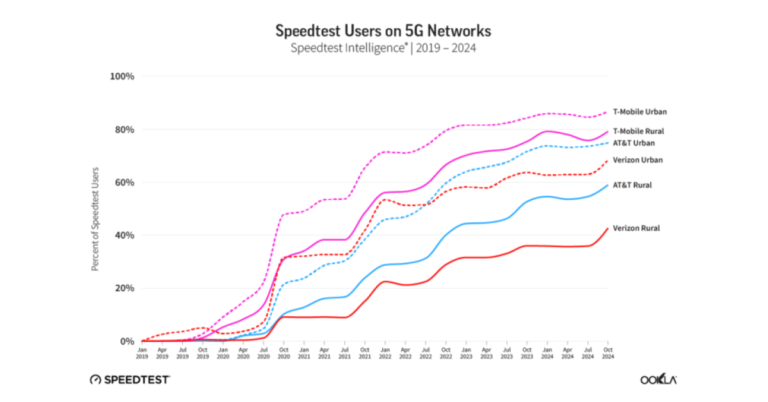Samsung Electronics was selected to provide a diverse selection of its 5G solutions to five government agencies and private institutions in Korea. This project is part of the government initiative to advance the country’s private 5G ecosystem, allowing non-telecom operators to build and operate 5G networks using 4.7GHz and 28GHz — which are dedicated frequency bands for private 5G networks in Korea.
“Private 5G networks will enable progressive changes across all industry verticals. Applications like digital twins, autonomous vehicles, AI and AR are only a glimpse of the plethora of use cases Samsung’s 5G can bring to life,” said Yong Chang, Vice President of Global Sales and Marketing, Networks Business at Samsung Electronics. “Samsung understands the unique needs of enterprises and is capable of delivering optimized network experiences. We are excited to help drive the private 5G ecosystem in Korea.
Image source credit: Samsung
Samsung will provide its advanced private 5G network solutions to an array of entities in the public and private sectors — including energy, safety, water resource management, medical services and medical education.
In the public sector, Samsung will collaborate with three major government agencies to help them ensure workplace safety and efficiency by applying smart, AI-enabled connectivity solutions:
- Korea Electric Power Corporation, the largest electric utility in Korea, plans to deploy smart grid technologies and build digital twins to enhance safety and efficiency in the workplace. A digital twin technology is a virtual replica of an electrical substation, and will help with remote monitoring and inspection around the entire premises. This not only saves time and resources spent on actual site inspections but also enables real-time monitoring on the safe working environment of the employees. 5G-powered wearable cameras and autonomous robots will also boost control and monitoring capabilities at various sites.
- Korea Industrial Complex Corporation, a government agency that manages and supports industrial complexes, will deploy a 5G-driven digital safety platform at various work sites. Samsung will help them build a robust, AI-based smart monitoring system for detection of fire hazards and any other security risks or emergencies in real-time.
- Korea Water Resources Corporation, a government agency for comprehensive water resource management, will build digital twins — virtual models of real-world river basins — to precisely visualize water flow and predict water-related hazards such as flood damages. Also, the digital twins of water purification plants will provide accurate AI-based simulations of the water purification process, improving accuracy in water management and predictive capabilities.
In the private sector, Samsung will also work with two of the largest and most technologically advanced hospitals in Korea, to implement enhanced medical services and immersive use cases, transforming the healthcare industry:
- Ewha Womans University Mokdong Hospital will introduce smart medical services, such as a 3D rendering of computed tomography (CT), rapid reconstruction of medical images and real-time, long-distance surgical collaboration using virtual interaction.
- Samsung Medical Center will leverage 5G to enhance its medical education program. Some examples will include remote training using AR glasses, virtual simulation of live surgical conditions and live-streaming of 360-degree recordings of surgical operation.
For private 5G network expansion in Korea, Samsung will deliver its advanced private 5G network solutions, including Compact Macro, Compact Core and radios supporting 4.7GHz and 28GHz bands. This new project follows Samsung’s recent deployment of Korea’s first private 5G network at Naver’s new headquarters.
Image source credit: Samsung
Samsung’s private 5G radios are capable of delivering improved uplink performance with optimized uplink feature, which can increase the ratio of network uploads to up to 40 percent. This latest feature is designed to help enterprises upload vast amounts of data across numerous devices simultaneously, which is required in many private networks.
Samsung has pioneered the successful delivery of 5G end-to-end solutions including chipsets, radios and core. Through ongoing research and development, Samsung drives the industry to advance 5G networks with its market-leading product portfolio from fully virtualized RAN and Core to private network solutions and AI-powered automation tools. The company is currently providing network solutions to mobile operators that deliver connectivity to hundreds of millions of users around the world.
























